Sports and skincare
Part 1: Acne and Dermatitis prone skin
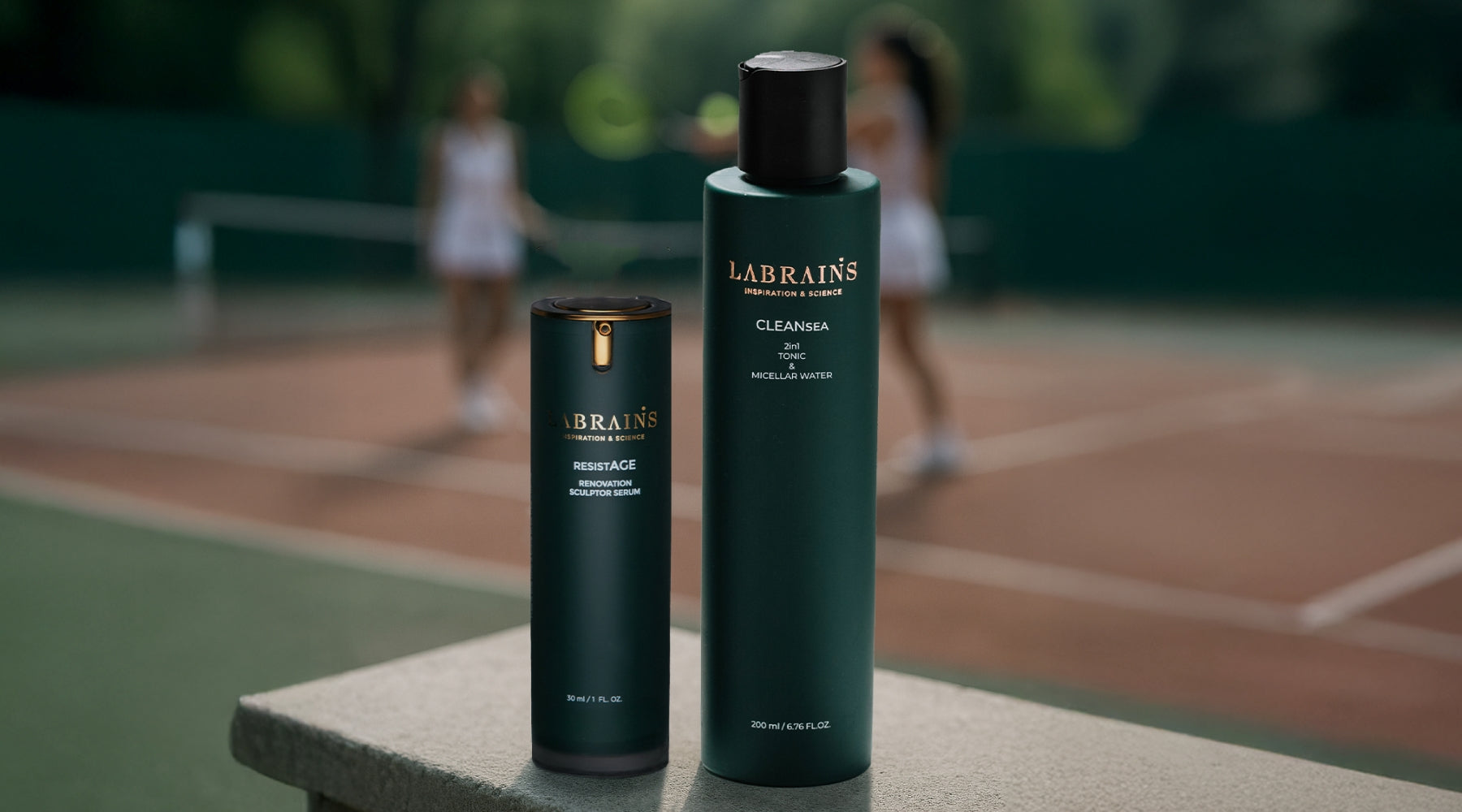
By LABRAINS in collaboration with Dr. Liāna Žarinova and MyFitness
Physical activities and skin health
A balanced fitness routine, combined with proper skin care, a balanced diet, and other healthy daily habits can be a significant factor in maintaining healthy facial skin over the long term. Physical activities not only improve overall body health but also make a significant contribution to keeping skin beautiful and healthy.
- During physical activity, heart rate increases, which improves blood circulation throughout the body, including the skin. This boosts the supply of oxygen and nutrients, promoting skin cell renewal and a healthy appearance.
- Regular physical activity helps reduce stress, which is important because stress often triggers various skin conditions such as atopic dermatitis, seborrheic dermatitis, psoriasis, rosacea, acne, and others. Prolonged stress increases the level of cortisol – a hormone that maintains inflammatory processes and accelerates the breakdown of elastin and collagen fibers. This can lead to skin aging and deterioration of skin condition.
- Exercise improves sleep quality, which is crucial for skin regeneration processes. During sleep, active skin cell regeneration and synthesis occur. “Beauty sleep” is not just a phrase or a myth – it is a vital factor in maintaining healthy skin.
- Biochemical processes in our body, hormone balance regulation, and the promotion of well-being are enhanced. After exercising, people often feel motivated to adopt other healthy daily habits such as eating a balanced diet or quitting harmful habits like smoking. Smoking narrows blood vessels, reducing blood flow and limiting the delivery of oxygen and nutrients to the skin. This promotes a duller skin tone and accelerates aging processes.
- During physical activities, the “happiness hormone” endorphin is released, bringing joy, uplifted mood, and an energy boost. This motivates engagement in additional activities that can positively impact the skin, such as:
> Visiting a cosmetologist or undergoing beauty treatments;
> Doing facial fitness exercises or massages at home;
> Attending seminars to gain new knowledge about skin care.
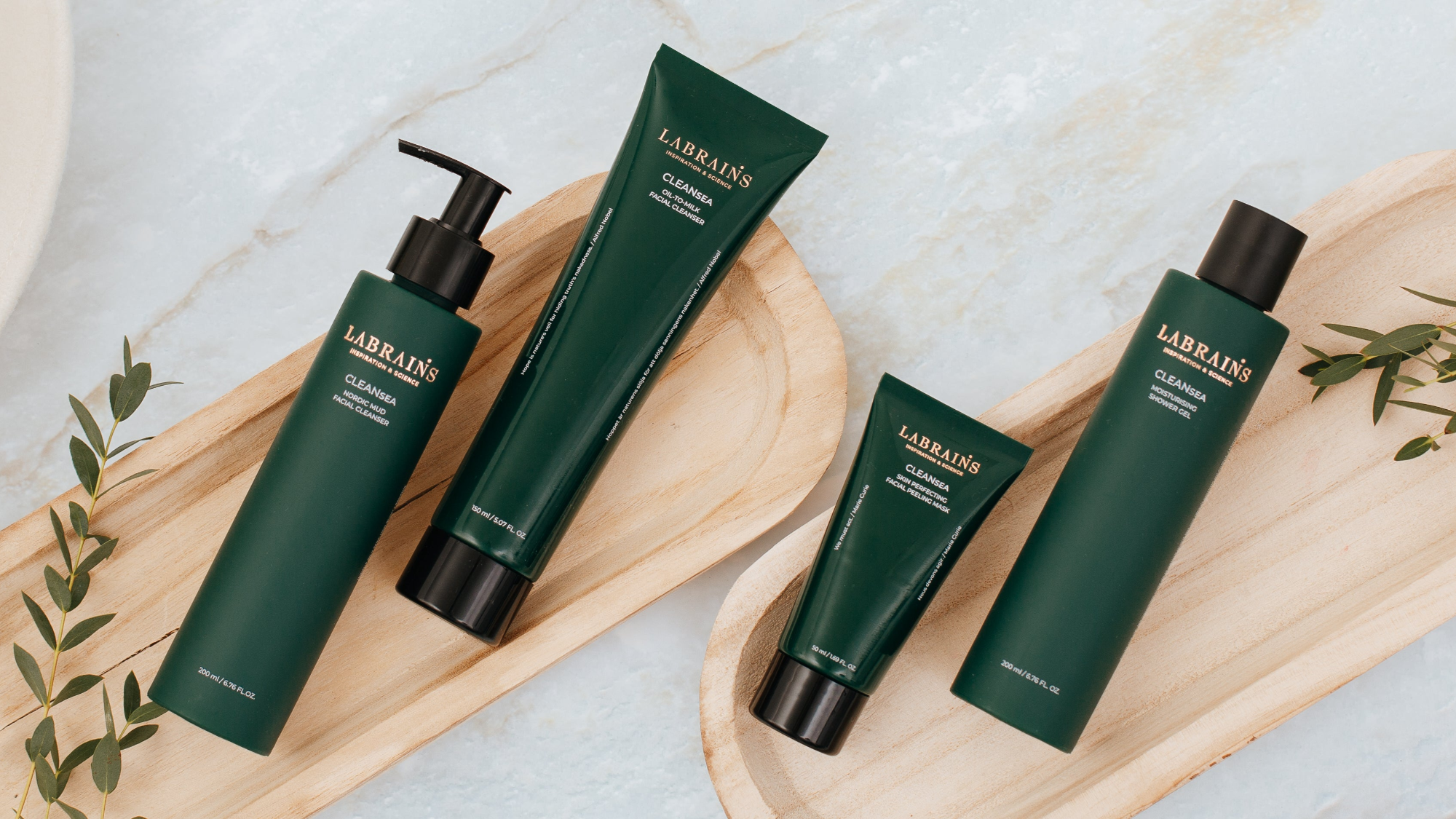
Everyday Irritants and Simple Solutions
Redness from intense workouts → moderate physical activity + soothing creams
UV exposure during outdoor activities → SPF
Chlorine irritation → cleansing the skin before/after swimming + protective barrier
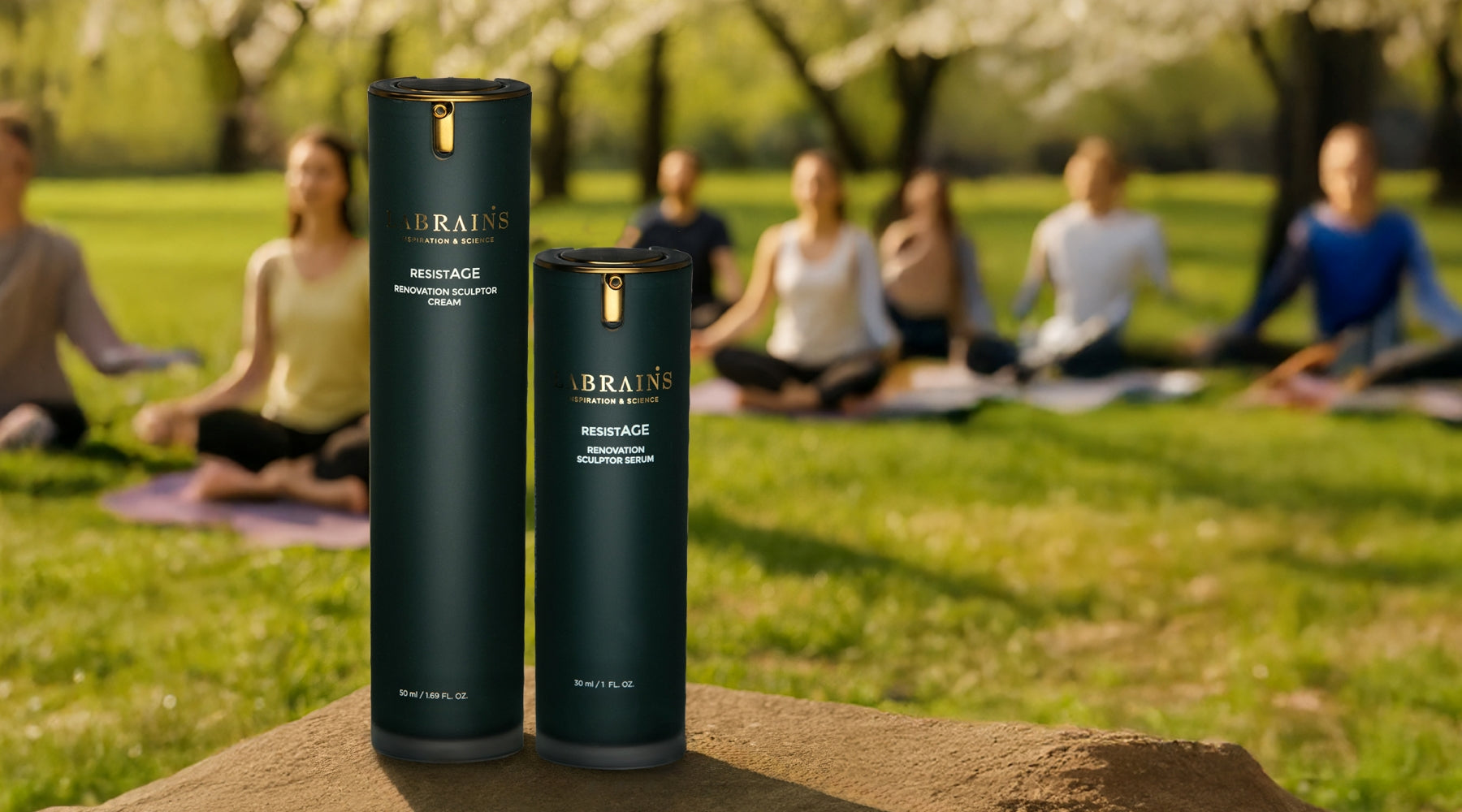
Exercising increases sweat production, which can mix with sebum, bacteria, and pollutants, potentially causing breakouts in acne-prone skin or irritation in dermatitis-prone skin.
The right pre- and post-workout skincare routine is essential to protect the skin barrier, balance hydration, and prevent flare-ups.
Why Is Gym Skincare Important for Acne & Dermatitis?
- Sweat & oil buildup → Clogs pores, increases bacterial growth (C. acnes for acne, S. aureus for dermatitis).
- Heat & friction → Weakens the lipid barrier, leading to dehydration & irritation.
- Air pollutants → can penetrate deeper leading to increased inflamamtion
- Gym equipment & towels → Transfer bacteria & irritants to the skin.
- pH disruption → Sweating can cause a temporary increase in skin pH, making it more vulnerable to inflammation, dehydration, and breakouts.
🧘 To prevent this, LABRAINS recommends a tailored cleansing routine before and after workouts.
Goal: Protect the Skin Barrier & Prevent Bacteria Buildup
Pre-Workout Routine
Step 1
CLEANSE
- For Acne-Prone Skin → Pore Perfect Cleanser (removes excess oil without stripping the skin).
- For Dry or Sensitive Skin → Micellar Water & Tonic (restores pH & microbiome balance).
Step 2
Hydrate & Balance
Apply a lightweight, non-comedogenic serum to prevent dehydration during workouts.
- Acne-Prone Skin → Pore Perfect Serum (balances sebum & prevents sweat-induced breakouts).
- Sensitive or Dry Skin → Renovation Sculptor Serum (prevents dehydration & reinforces the lipid barrier).
Step 3
Lock in Protection
Choose a breathable, non-heavy moisturizer:
- Oily/Acne-Prone Skin → Rosa Cease & Pore Perfect Cream (light hydration without clogging pores).
- Sensitive/Dry Skin → YoungDali Cream (barrier-supportive, lightweight hydration).
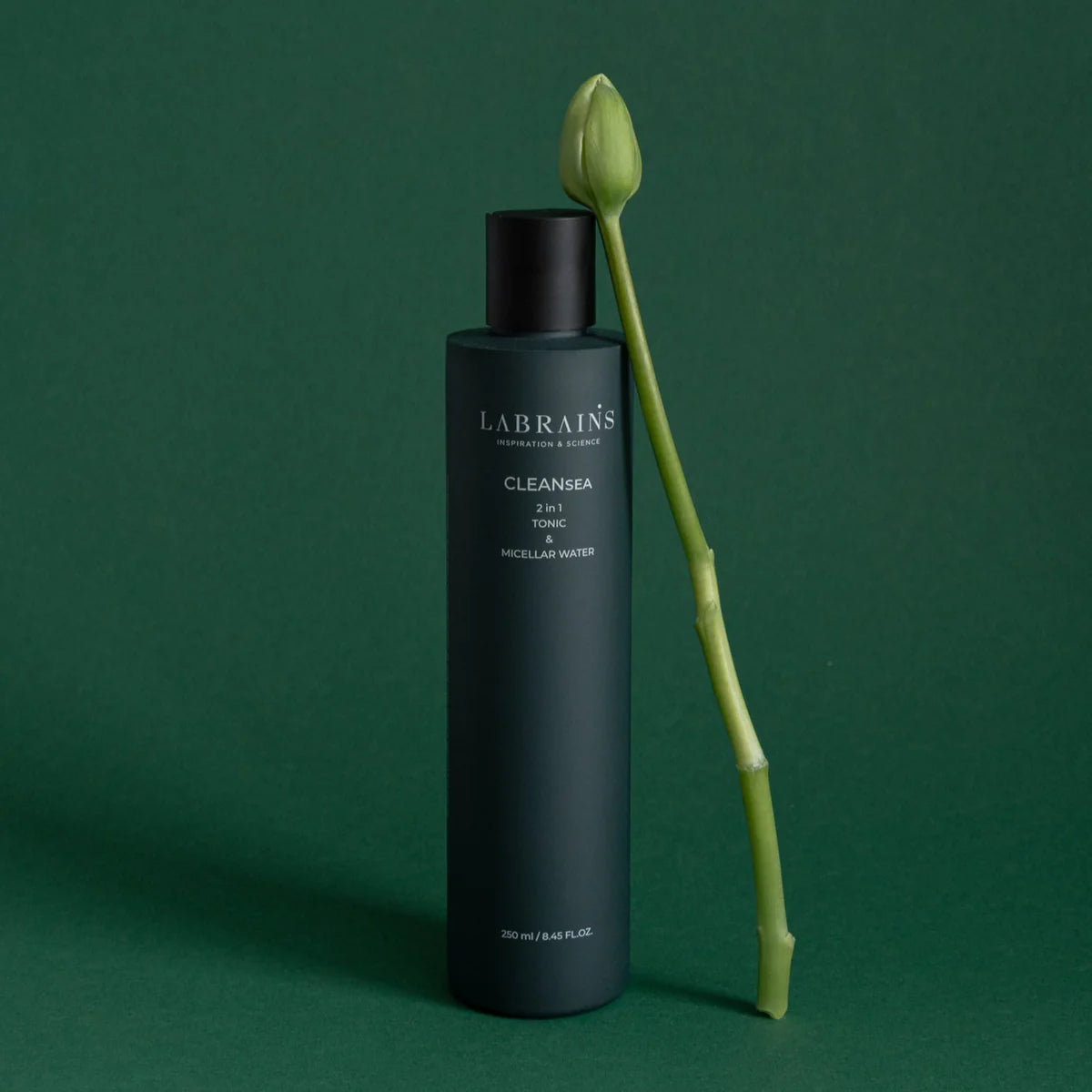
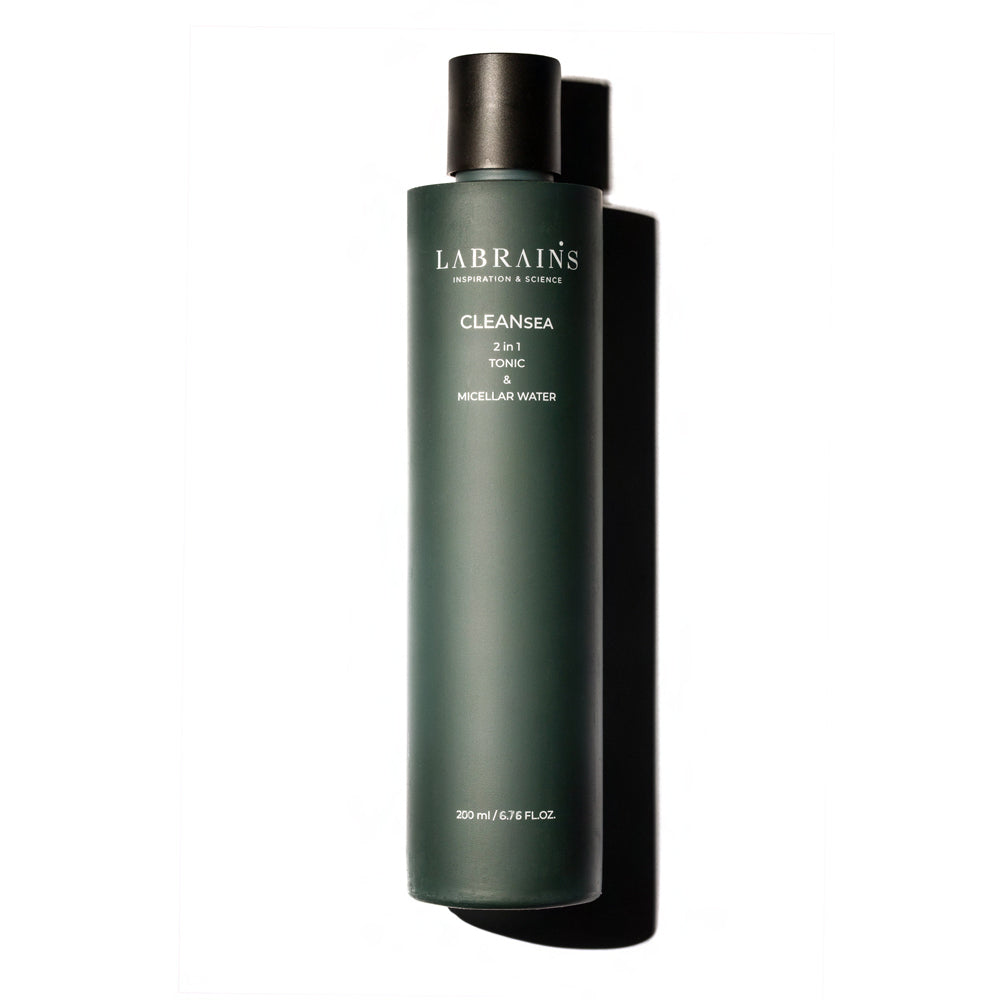
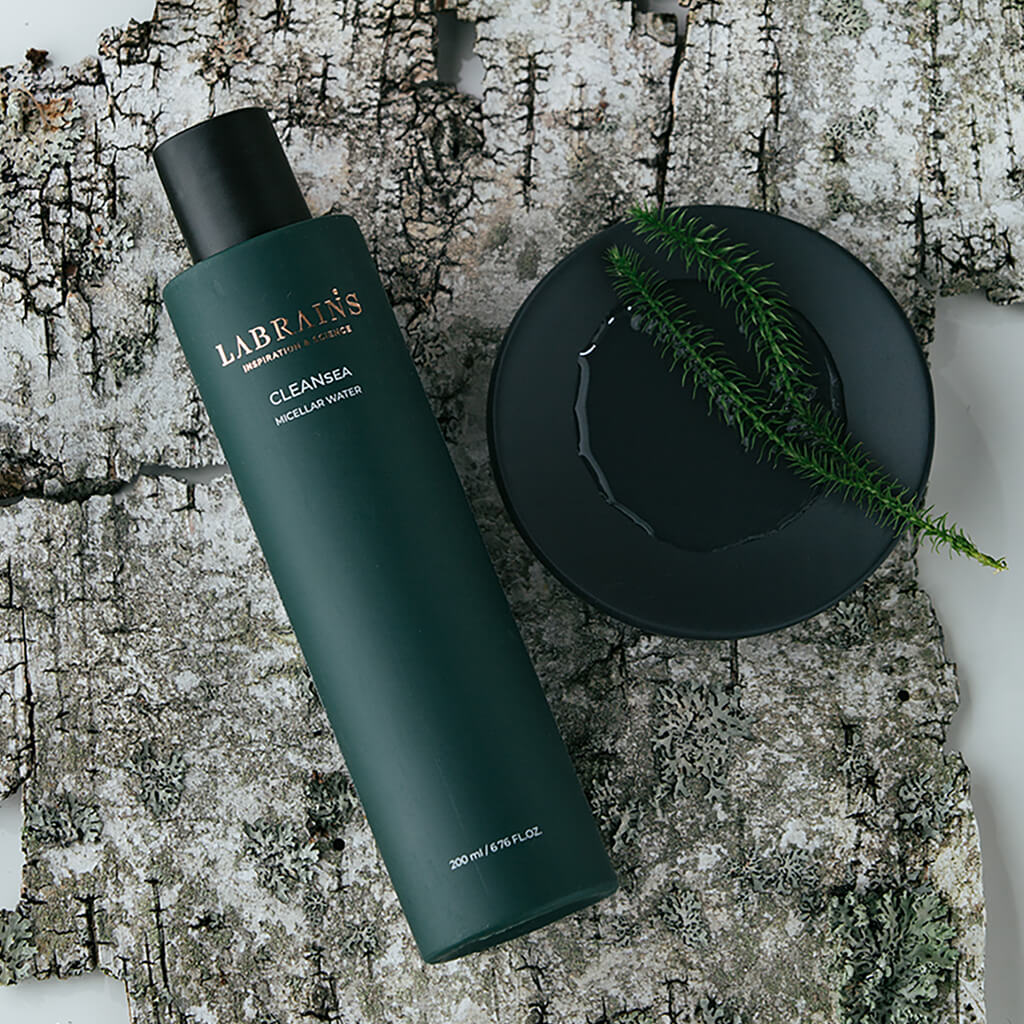
Gentle micellar water for dry and sensitive skin infused with probiotic, antioxidant, and anti-inflammatory ingredients to cleanse, moisturize, tone, and protect the skin barrier. Removes impurities and makeup while deeply hydrating, balancing pH, and protecting against photoaging.
![]()
![]()
![]()
Goal: Remove Sweat, Prevent Bacterial Growth & Restore Hydration
Post-Workout Routine
Step 1
Double Cleanse
- For Acne-Prone Skin
Step 1: Nordic Mud Cleanser (detoxifies & deeply cleanses without disrupting the lipid barrier).
Step 2: Micellar Water & Tonic (removes sweat & surface impurities).
- For Sensitive/Dry Skin or Dermatitis-Prone Skin
Step 1: Micellar Water & Tonic (removes sweat while protecting the microbiome).
Step 2: Oil-to-Milk Cleanser - apply as protective layer before the shower (nourishes while cleansing).
Step 2
Restore Skin Hydration & Reduce Inflammation
- Acne-Prone Skin → Pore Perfect Serum (reduces post-gym breakouts & balances oil).
- Sensitive/Dry Skin → Rosa Cease Care Serum (calms redness & irritation after sweating).
For extra hydration (both skin types): Renovation Sculptor Serum (prevents dehydration & strengthens the skin barrier).
Step 3
Lock in Moisture & Barrier Repair
Use a moisturizer to restore lipid balance & prevent water loss.
- Acne-Prone Skin → ABC de Intense Creme (hydration + microbiome support).
- Sensitive/Dry Skin → ABC Deep Nourishing Cream (deep lipid replenishment).
For Redness/Irritation: DermaTreat Cream (barrier repair & anti-inflammatory).
Extra Gym Skincare Tips for Acne & Dermatitis-Prone Skin
- Avoid touching your face during workouts → Gym equipment, towels, and hands can transfer bacteria to the skin.
- Use a clean towel → Blot sweat instead of rubbing (rubbing increases irritation & barrier damage).
- Stay hydrated → Dehydration affects skin elasticity & oil balance.
- Shower after exercise → Sweat buildup on the body can cause back acne & irritation. Use Oil-to-Milk Cleanser or Nordic Mud Cleanser on areas prone to breakouts.
- Don’t skip moisturizer post-gym → Even acne-prone skin needs moisture to prevent dehydration-induced oil production.

Why Can Acne and Dermatitis Sometimes Be Treated with the Same Products?
Understanding the Core Issue: Disorganized Lipids in the Skin Barrier
Although acne and dermatitis appear to be opposite conditions, they often share a common root cause — disorganized skin lipids leading to barrier dysfunction, dehydration, and inflammation.
Whether someone is prone to acne or dermatitis, if their skin lacks properly structured lipids, it will struggle to function normally, leading to chronic issues such as inflammation, dehydration, and breakouts.
Instead of only treating acne breakouts or eczema symptoms, the first step should be to repair the skin barrier by restructuring lipids, balancing hydration, and supporting the microbiome.
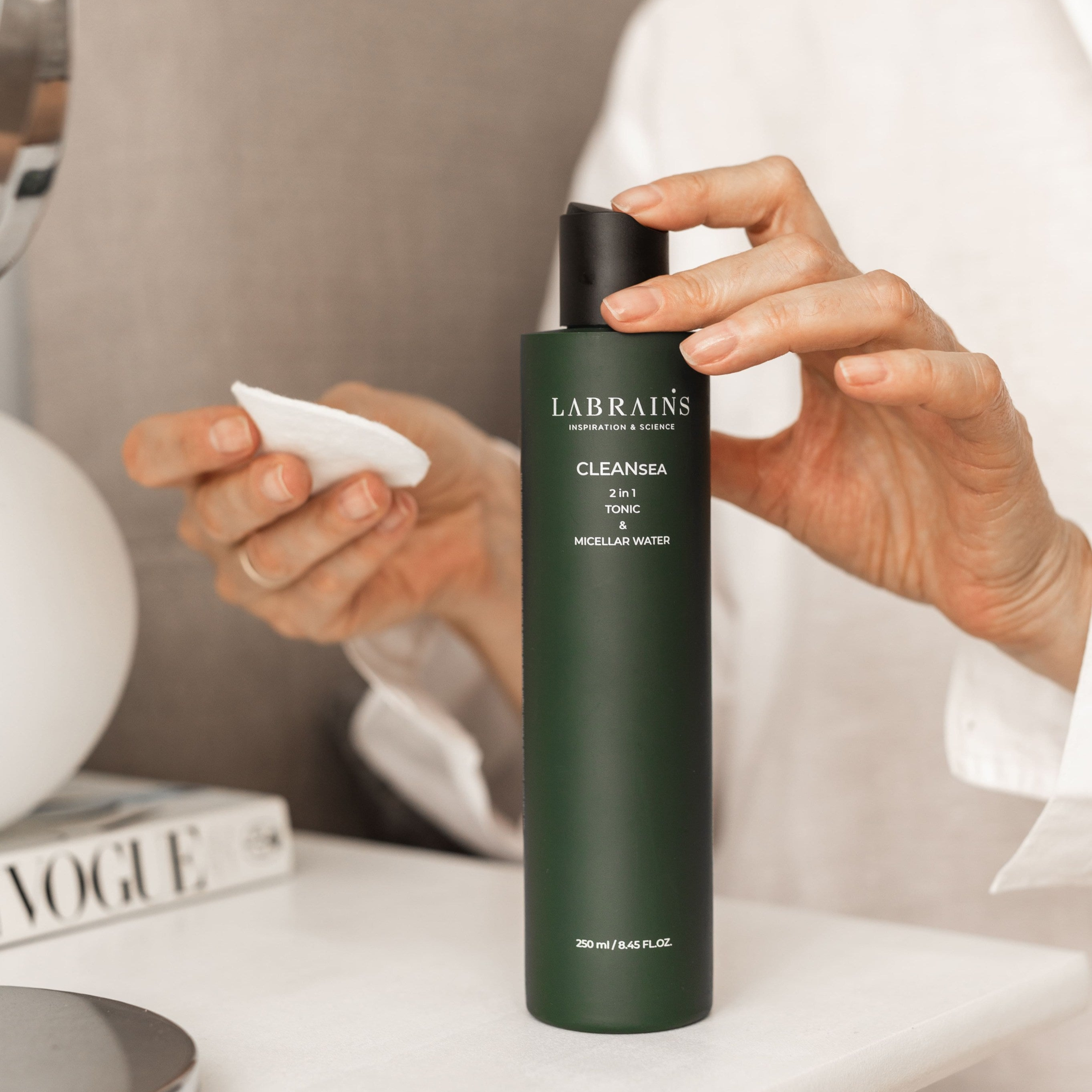
Acne vs. Dermatitis: Different Symptoms, Same Core Issue
Acne-Prone Skin
- People with acne-prone genetics experience breakouts, clogged pores, and excessive sebum production.
- Many mistakenly believe their skin is too oily, but in reality, excess oil is often a defense mechanism against dehydration.
- Stripped, dehydrated skin signals the sebaceous glands to produce even more oil, creating a cycle of dehydration, oiliness, and breakouts.
Dermatitis-Prone Skin (Eczema, Atopic Skin)
- People with dermatitis-prone genetics experience dryness, irritation, flaking, and red skin.
- Their skin is highly reactive to environmental triggers due to a weakened lipid barrier that allows moisture to escape.
Without proper lipid restructuring, the skin remains chronically dry, irritated, and prone to eczema flare-ups.
The Solution: Rebuilding the Skin’s Lipid Organization
To repair disorganized lipids, we need moisturizers with ceramides, squalane, plant-based oils, and a lamellar structure that mimics the skin’s natural lipid barrier.
Hydration is Key for Both Acne and Dermatitis
Many acne-prone individuals avoid oils, thinking they will make their skin more oily. But without proper hydration, the skin overproduces sebum, leading to more breakouts. Similarly, dermatitis-prone skin lacks essential moisture and becomes irritated.
LABRAINS Acne & Dermatitis Skincare Routines
Acne-prone skin
Morning routine
1. Cleanse: Pore Perfect Cleanser
2. Rebalance pH & Hydrate: Micellar Water & Tonic
3. Serum: Pore Perfect Serum → For hydration + acne control
4. Moisturizer:
- ABC de Intense Creme → Daily barrier support
- YoungDali Cream → For mild hydration & lipid balance
- Pore Perfect Cream → For acne-prone skin needing barrier repair
Night Routine
1. Double Cleanse:
- Oil-to-Milk Cleanser → Removes SPF/makeup
- Nordic Mud Cleanser → Removes dirt & pollutants
2. Rebalance pH: Micellar Water & Tonic
3. Serum:
- Renovation Sculptor Serum → Deep hydration & barrier repair
- Pore Perfect Serum → Lymphatic drainage & acne prevention
4. Barrier Repair Cream: ABC Deep Nourishing Cream → For overnight hydration
Dermatitis-prone skin
Morning routine
1. Cleanse: Cleansing Cream
2. Rebalance pH & Hydrate: Micellar Water & Tonic
3. Serum:
- Rosa Cease Care Serum → For redness & inflammation
- Renovation Sculptor Serum → For hydration & anti-aging
4. Moisturizer:
- ABC de Intense Creme → Daily barrier support
- YoungDali Cream → For mild hydration & lipid balance
- DermaTreat Cream → For highly sensitive or dermatitis-prone skin
Night Routine
1. Double Cleanse:
- Oil-to-Milk Cleanser → Removes SPF/makeup
- Nordic Mud Cleanser → Removes dirt & pollutants
2. Rebalance pH: Micellar Water & Tonic
3. Serum:
- Renovation Sculptor Serum → Deep hydration & barrier repair
- Rosa Cease Care Serum → Calming & anti-inflammatory
4. Barrier Repair Cream: DermaTreat Cream (pH 4.7) → For eczema, dermatitis, and barrier repair
By following LABRAINS routines, both acne and dermatitis-prone skin can stay balanced, hydrated, and irritation-free before and after workouts.

